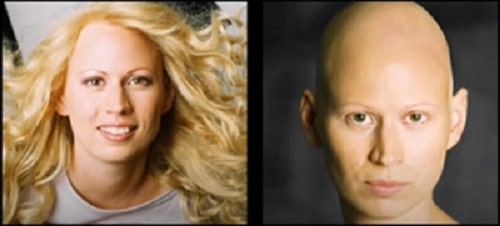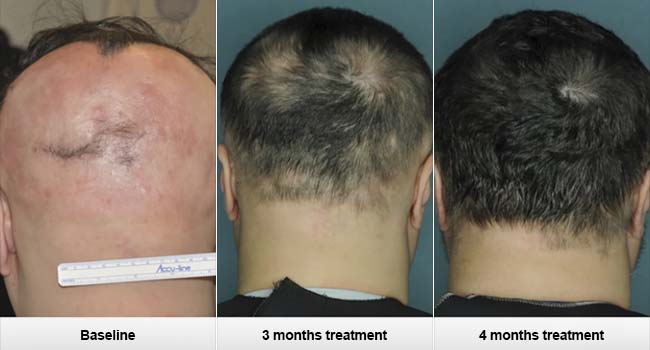Despite the main focus of this blog being on androgenetic alopecia (AGA), I have made a number of posts about alopecia areata (AA) during the past year. Note that alopecia areata can be in the form of alopecia totalis or alopecia universalis.
Over 95 percent of hair loss patients suffer from AGA, also known as male pattern baldness and female pattern hair loss.
Alopecia Areata Treatment Breakthroughs
Over the past year, a lot of good news has come out regarding alopecia areata treatments involving JAK inhibitors. This is due to the great work of people such as Dr. Angela Christiano and Dr. Brett King.

In my opinion, there is also a chance that these JAK inhibitor drugs may benefit people with certain types of androgenetic alopecia. In particular, when there is an inflammatory (dandruff, itching, scaling) component involved too. However, this is pure conjecture on my part and entirely unproven.
Dr. Angela Christiano Video
Dr. Angela Christiano recently published a good video on alopecia areata, and it includes her personal experiences with the disease. There is more of a female focus in Dr. Christiano and her Columbia University team’s latest research, which is a rarity in the hair loss world.
This video is embedded below. A few of the more interesting sections include:
- 11:00 = I was quite surprised to read that alopecia areata affects 5.3 million people in the US, with a 1.7 percent lifetime risk.
- 11:42 = comparison with genes involved in psoriosis and vitiligo.
- 12:15 and 12:45 = most important part of the presentation related to research on Janus kinase (JAK) inhibitors. These include Ruxolitinib (JAK 1,2); Tofacitinib (JAK 1,2,3); Baricitinib (JAK 1,2); VX-509 (JAK 1,2); and R348 (JAK 1,2). The last three mentioned are not yet approved, while the first two are FDA approved for certain applications. You can read more about those drugs via the “Categories” section in the left hand column of this blog.
- 12:57 = Results on mice.
- 23:47 = Great results on a woman and later on a man.
